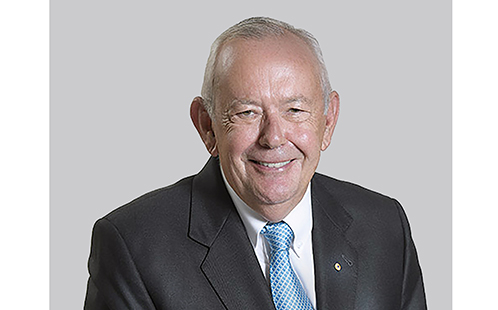New study finds limited financial viability for cigarette vending machines in licensed venues

New research has found that for Australian alcohol-licensed venues that sell tobacco exclusively through vending machines, tobacco sales are of low financial importance to businesses.
Despite this, less than four per cent of businesses who participated in the study reported they would be likely to voluntarily stop selling tobacco, highlighting a need for proactive legislative reform to reduce the supply of tobacco in licensed venues and reduce Australian smoking rates.
Published in the Australian and New Zealand Journal of Public Health (opens in a new window), the study was conducted with over 800 owners and managers of alcohol licensed premises in New South Wales, Queensland, and Western Australia.
Chief Investigator and co-author of the study, Professor Suzan Burton from Western Sydney University’s School of Business said that ending tobacco sales through vending machines at licensed premises would assist people who smoke to resist buying tobacco on impulse and will eliminate a key trigger for smoking relapse or smoking while consuming alcohol.
“While removing vending machines is an important policy action that will reduce the retail availability of tobacco products in alcohol-licenced venues, it should be considered as a necessary first step rather than an end point,” said Professor Burton.
“The sale of tobacco via vending machines in Australia conflicts with guidance provided by the World Health Organisation in the Framework Convention on Tobacco Control. The removal of tobacco vending machines will align with Australia’s obligations under this framework andwill further align us with the national strategy for decreasing the harm from tobacco consumption.”
The study highlighted the perception among respondents that tobacco sales are unimportant for the financial viability of the majority of alcohol-licenced premises and suggests that removing vending machines from all licensed premises is unlikely to result in widespread negative feedback from venue owners and operators.
However, attitudinal responses indicate that most outlets will not stop selling tobacco through vending machines, unless required to do so by legislative action.
Professor Burton said the association between alcohol consumption and tobacco use is well established, with research showing that people who drink alcohol are more likely to smoke, and vice versa.
“People who smoke report that the ease of purchasing tobacco products increases consumption, while alcohol consumption, particularly in social settings like pubs and clubs also increases the amount and likelihood of smoking for those who occasionally smoke, undermining quitting attempts.”
“Access to vending machines to buy cigarettes adds to that problem by making buying cigarettes easy, and that’s particularly problematic for people who are trying to stop smoking.”
Researchers have found that alcohol-licenced venues account for 34.2 per cent of all New South Wales tobacco retail vendors—representing the most common type of tobacco retailer.
Tobacco cannot be displayed before sale in Australia but can be legally sold over the counter in all Australian alcohol-licenced venues and can also be sold through vending machines in all states and territories except the Australian Capital Territory, where tobacco vending machines were banned in 2004.
“The Australian Capital Territory has already prohibited tobacco sales through vending machines and extending that action to the rest of Australia would help address and prevent impulse purchasing. It is a simple policy reform that is long overdue,” said Professor Burton.
The study was conducted in collaboration with researchers from Western Sydney University, Cancer Council Australia, and the Daffodil Centre, a joint venture between Cancer Council NSW and the University of Sydney.
ENDS
22 March 2024
Image Credit: Jonathan Kemper on Unsplash
Latest News

Opinion: What do we lose when our old suburbs disappear?
I live on the edge of Parramatta, Australia’s fastest-growing city.

Opinion: Most bees don’t die after stinging – and other surprising bee facts
Most of us have been stung by a bee and we know it’s not much fun. But maybe we also felt a tinge of regret, or vindication, knowing the offending bee will die. Right? Well, for 99.96% of bee species, that’s not actually the case.

Western Sydney University receives transformational donation to support LGBTIQA+ community
Western Sydney University has welcomed a philanthropic donation from The Brennan Lynch Foundation.
Mobile options:

